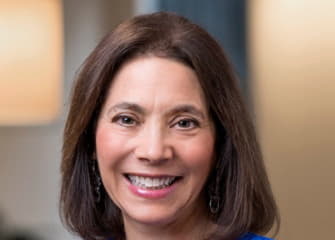
Diana Morris
Click here for Part I & Part III
Developing bold, community-driven strategies to effect lasting positive change in Baltimore
Diana Morris is the executive director of the Open Society Institute–Baltimore, the only field office for the U.S. Programs of the Open Society Foundation, an international grant-making network founded by philanthropist and investor George Soros. OSI–Baltimore works with local private and public partners, including the city’s community groups and social entrepreneurs, to diminish rates of drug addiction, incarceration, and poor education outcomes in Baltimore. For this interview, Diana spoke with Veronica Cool, Hispanic strategist and OSI–Baltimore board member, about the organization’s history, programs, and ongoing campaigns.
VERONICA COOL: Let’s talk about what OSI–Baltimore does for the communities here.
DIANA MORRIS: We’ve chosen to focus on three big areas, and we tend to stick with them for a long time because they are so complicated. We’ve been able to hire staff and we have an advisory board here that have the kind of skills and backgrounds to guide us through what are, in the end, very complicated bureaucracies and policies and practices. We’re working in the criminal and juvenile justice area, we’re working on drug addiction treatment, and we’re working on education, particularly looking at the nonacademic factors that kids need—the nonacademic kind of support that kids need to be able to focus, learn, graduate, and do well as young adults. In addition to that, we have a fellowships program, which invites all sorts of social entrepreneurs to focus on revitalizing Baltimore’s communities. That’s now 180-people strong, and it’s a tremendous opportunity for people both new to Baltimore and people who have been here for a long time to put their ideas and their passion into practice.
In these areas we’ve seen significant success, although we do take risks, and not everything works out. We look and try to see what are things that, working closely with government, we can really change. We’re not focused on direct services. We’re really trying to help hundreds and thousands of people in the city, and often in the state, to have a different opportunity and to establish a playing field that is level. For example, in the criminal justice field, for a long time the state was actually giving very few people parole, compared to other states. We looked closely and found that there really wasn’t a risk instrument that has been documented to be fair that the parole commission was using. We were able to bring someone in who created that instrument and then also train people how to use it. The result was that instead of only 20% of people being released on parole, 40% have now gotten released. Andthat’s important because we know that how long a person is incarcerated doesn’t affect whether they are a public safety risk. These are all people who have been judged to be safe to be released earlier than finishing their complete sentence. It obviously saves money for the state—and right now we’re investing so much money in the correction system, and it takes money away from other things that many residents would prefer to see supported.
Q. What does that all look like in terms of tangible outcomes for the city and state?
A. We have looked to see what impact we have. Sometimes what we do is a result in policy change; sometimes we’re able to bring new money into the state or to the city; and sometimes we’re able to save a lot of money. We know that it’s very expensive, for example, to incarcerate a person. Generally that’s about $30,000 a year, on average—depending upon the level of security of the place. If we can get a person out earlier and safely, that’s a real savings to the state. One thing, for example, with the matter of parole: there’s a window in which people can be paroled, and we simply made the recommendation that rather than waiting for the end of that sort of six-month window, let’s do it at the start. If the person actually is not a safety risk and can be paroled into the community and reintegrated into the community, let’s do it there, because six months of not being incarcerated represents a $15,000 savings per person.
There has been other instances, too, where we have been able to bring money in. There is obviously a huge addiction problem throughout the entire country. It’s been with us, obviously, for thousands of years, from one culture to the next. At the moment, what we want to do is to have people helped as early as possible, before a drug problem really gets to be severe.
Many doctors have not been trained in medical school to really screen for that. We were able to introduce a screening protocol, which is very easy to teach, and we were able to start it in a number of the clinics here. And the result of that was that Baltimore was able to compete for a federal grant. And so our little grant of maybe $35,000 ended up bringing a $10 million grant into the city and state, so that this screening protocol can now be used throughout the entire state. And that means many more people, just in a regular visit to their primary care doctor, will be asked some critical questions about drug use. I think that’s a way to begin to identify someone who’s beginning to have a drug problem, and they can then be referred to someone who can really help them early, before it gets out of control.
Connect with Diana on LinkedIn


Edwin Warfield, CEO of citybizlist, conducts the CEO Interviews.
If you're interested in reaching CEOs, please contact edwin.warfield@citybuzz.co
Connect on LinkedIn


































